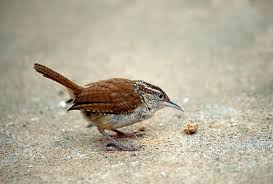
记忆方法
将“morsel”分解为“mor”(代表“morning”,早上)和“sel”,想象早上吃到的第一口美味的小点心,就像“morning sel”,这样的小点心或食物片就形象地记忆了“morsel”的含义。
以上内容由AI生成, 仅供参考和借鉴
中文词源
morsel 少量,小块食物
来自拉丁语mordere,咬,词源同mordant,remorse.即咬下的一小口,引申词义少量,小块食物。
英语词源
- morsel
-
morsel: [13] Etymologically, a morsel is a piece ‘bitten’ off. The word comes from Old French morsel, a diminutive of mors ‘bite’. This in turn goes back to Latin morsus, a derivative of the same base as the verb mordēre ‘bite’. Other English words from the same source include mordant [15] and remorse.
=> mordant, remorse - morsel (n.)
- late 13c., "a bite, mouthful; small piece, fragment," from Old French morsel (Modern French morceau) "small bite, portion, helping," diminutive of mors "a bite," from Latin morsus "biting, a bite," neuter past participle of mordere "to bite" (see mordant).
权威例句
- 1. a tasty morsel of food
- 一点可口的食物
- 2. He ate every savoury morsel of a delectable stew at the dinner.
- 晚餐时他吃遍每一道味美可口的炖食.
- 3. He refused to touch a morsel of the food they had brought.
- 他们拿来的东西他一口也不吃.
- 4. The patient has not had a morsel of food since the morning.
- 从早上起病人一直没有进食.
- 5. The poor morsel of food only whetted desire.
- 那块小的可怜的喜糕反而激起了他们的食欲.